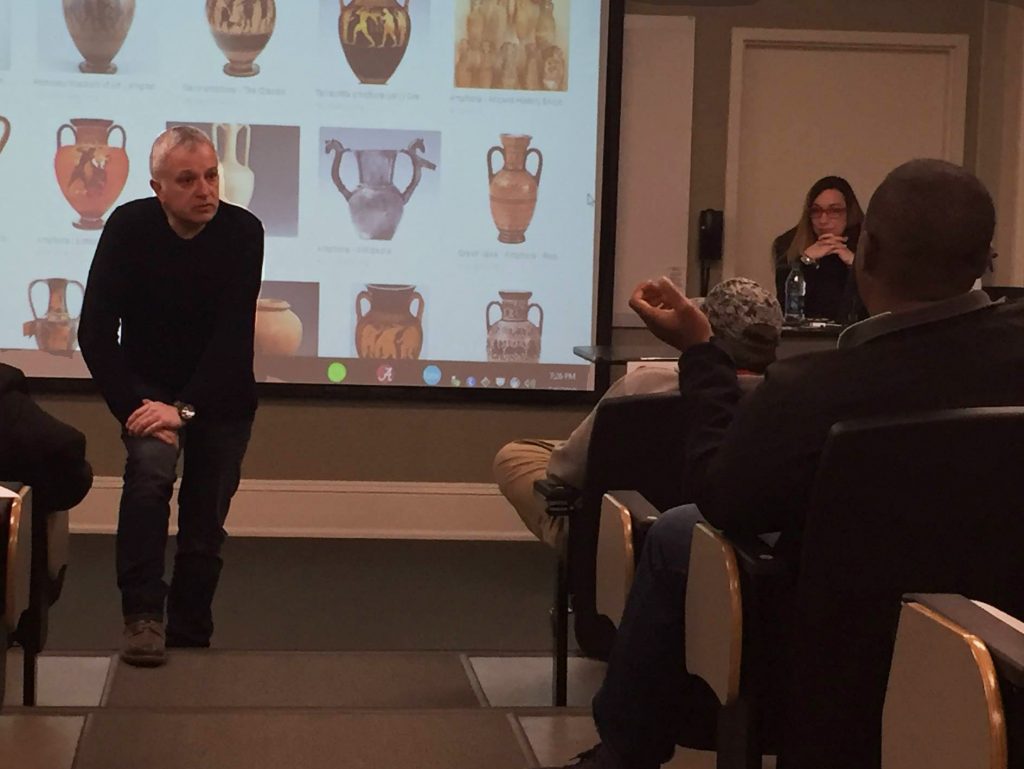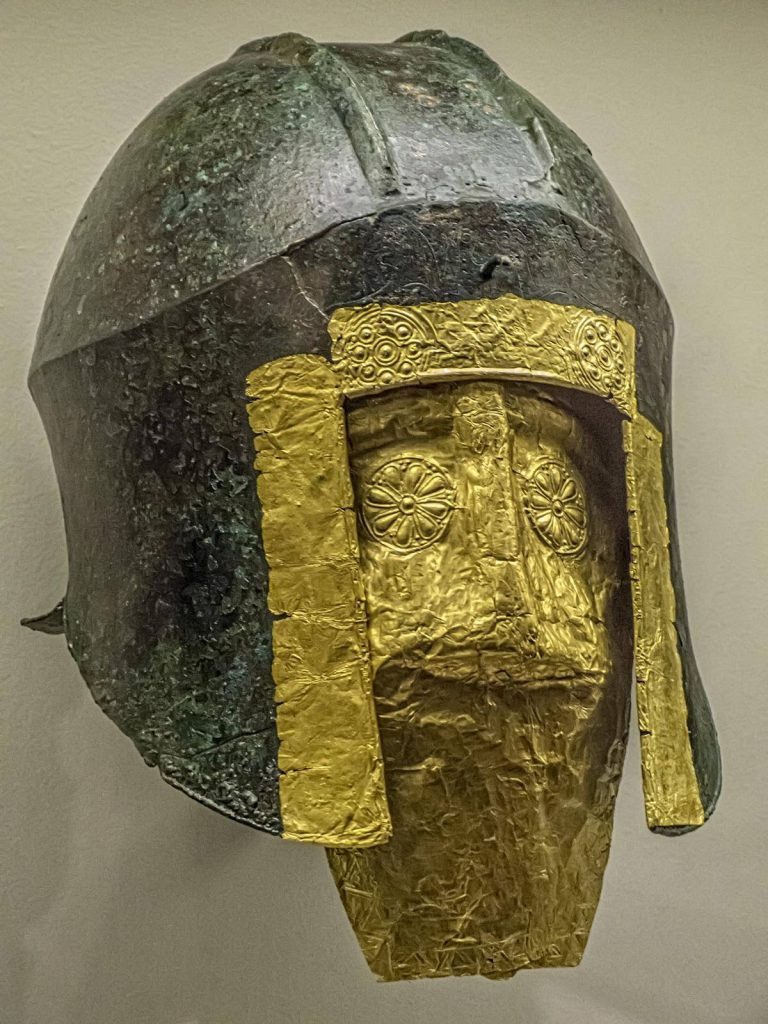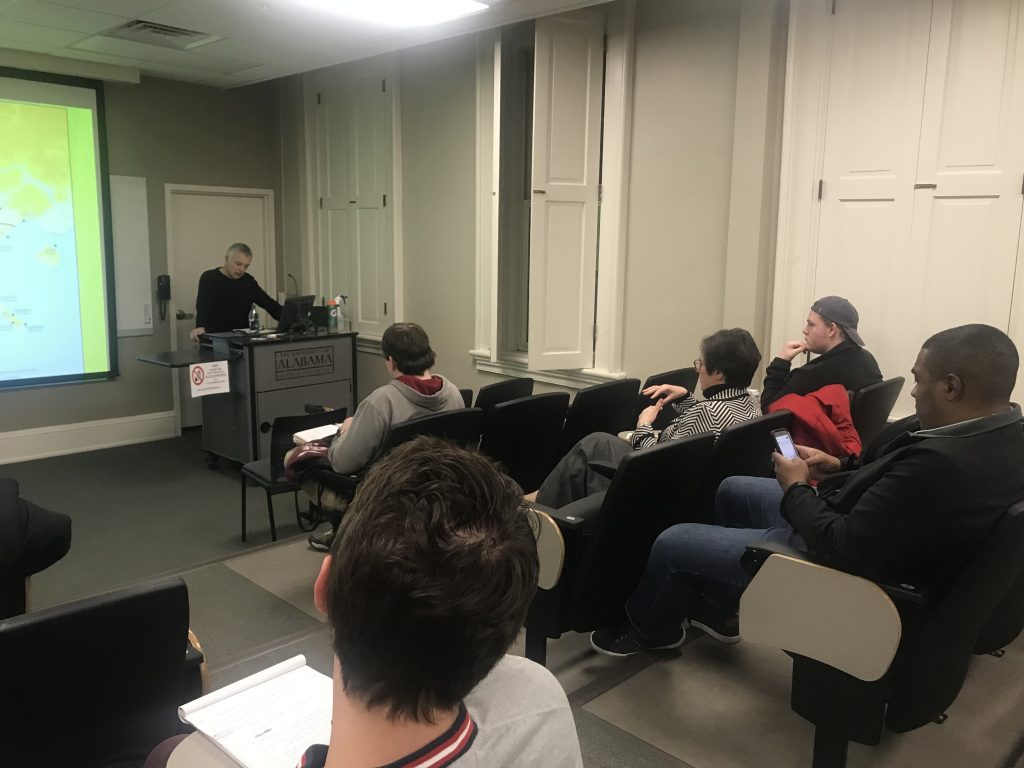
As part of UA’s Alabama/Greece Initiative, Prof. Ioannis Xydopoulos visited the Department of Religious Studies just before Spring Break, hosted by REL’s Prof. Vaia Touna. After meeting with students, exploring Tuscaloosa, and guest teaching in one of Prof. Touna’s classes, our visitor from Aristotle University (AUTh) in Thessaloniki, presented his research on issues of ancient Greek identity.
Prof. Xydopoulos used archeological artifacts from various burial sites across Greece to critique the common assumption that ancient Greeks intentionally formed their own ethnicity. Through a brief explanation of ancient Macedonian history and comparisons of burial rites like cremation and death masks, Xydopoulos argued that connections and distinctions between various groups of social actors in the past are more difficult to form than most scholars infer.

Later in his presentation, Prof. Xydopoulos argued that the differences in material artifacts that we find today may not necessarily reflect attempts at defining group boundaries but rather more personal characterizations. Markers of ethnicity, he argued, appear less prevalent than practices and distinctions indicative of how a person should be remembered in history or imagined in the afterlife.
Students and faculty from around campus were in attendance and pursued Xydopoulos’ claims in a lengthy Q&A portion. From pottery to shields, the conversation eventually led to modern issues of archeology and modern politics. In his response to one question, Prof. Xydopoulos argued that the way modern museums exhibit their artifacts can be evidence of how archeologists sometimes argue for self-evident phenomenon within their discoveries. Yet, according to his presentation and many other Religious Studies scholars, the ‘essence’ of the artifact is unable to be measured and is thus secondary to evaluating why particular groups claim certain artifacts, tombs, or historical sites for their particular purposes in the present.

For Prof. Xydopoulos, this approach to scholarship has been more useful than assuming that archeological items hold an inner meaning, or that Ancient Greeks might have used rituals or material items to define their distinct identity. Once again, efforts in the present to establish a particular understanding of the past as a cohesive moment can be more interesting to study.
The Alabama/Greece Initiative is made possible by funding from the College of Arts & Sciences, and annually brings either UA faculty to Thessaloniki or AUTh faculty to Tuscaloosa.
Find out more about the Alabama-Greece Initiative and Prof. Xydopoulos here.